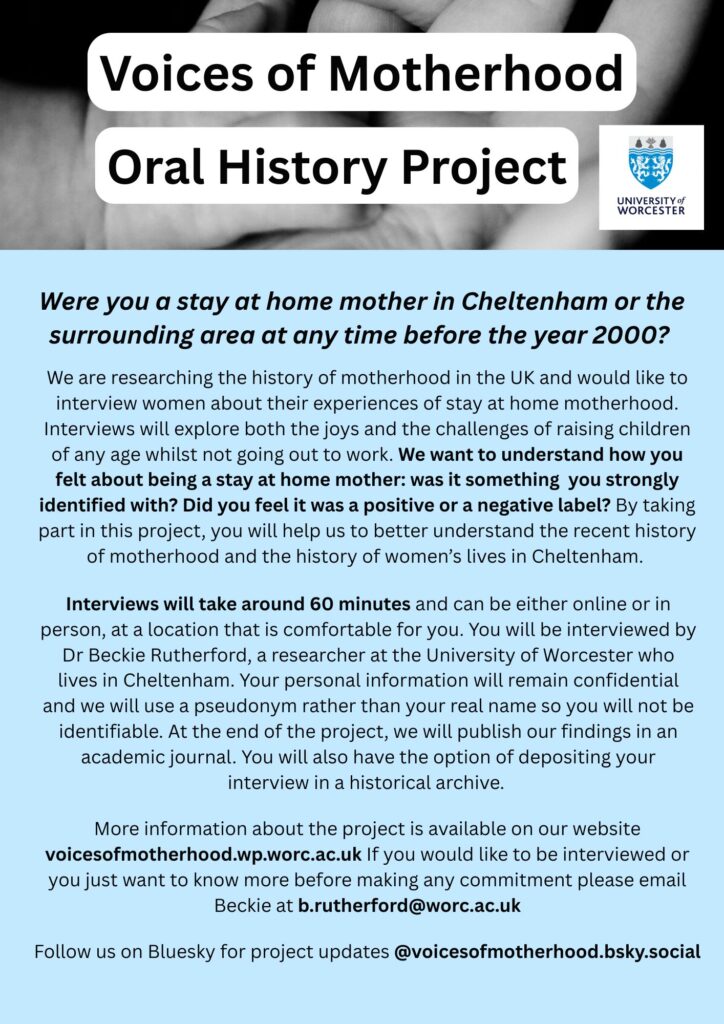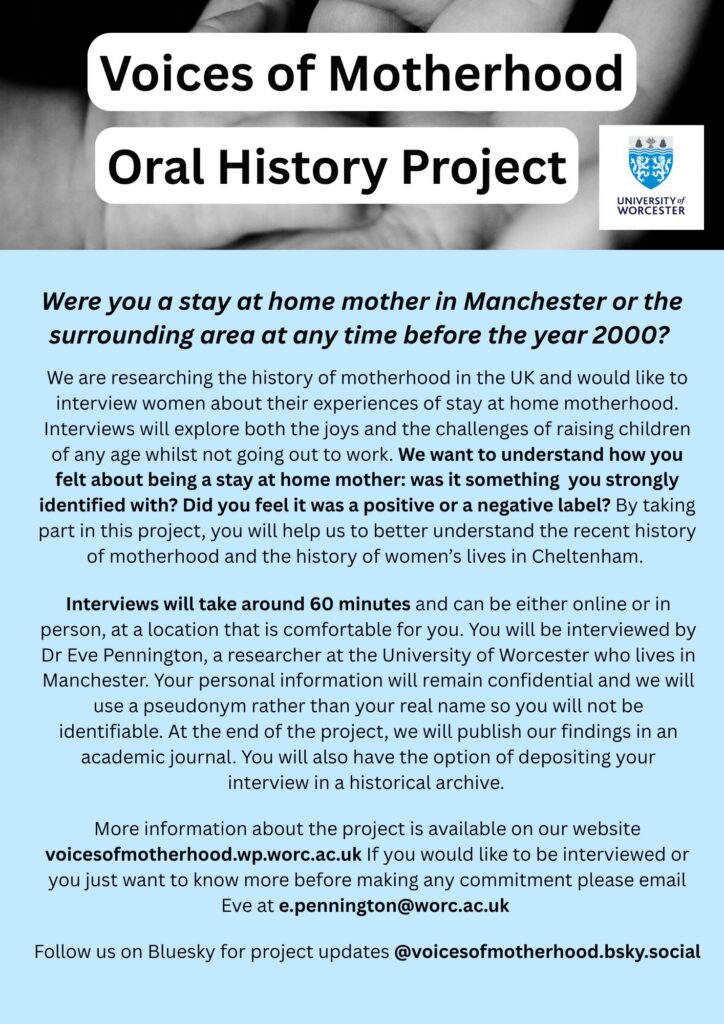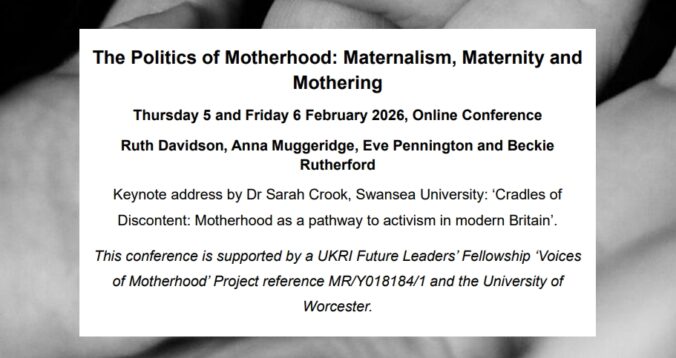Thank you very much to everyone who submitted an abstract for our conference – we were delighted by the enthusiastic response! We are aiming to publish our official programme in the first week of December.
Conceptions and experiences of motherhood have undergone significant change since 1900. Scientific and medical advances have impacted practices of pregnancy, birth, and infant and mother care. Policy and legislation have responded to social and economic changes, ascribing new norms to the assumed responsibilities and rights of mothers. Experiences of mothering have been inflected by these changes, not always to the benefit of mothers: for example, the postwar drive to increase hospital births elided the wishes of many women for midwife-led home births. Mothers have not been passive in response to these changes and have been active in protecting their rights and campaigning for better provision. Defining and exploring ‘motherhood’ since 1900 requires a multi-faceted approach, drawing on different academic disciplines, research questions and methodologies, which must be carefully contextualised. Please note, we have a flexible approach to periodisation and historical understandings of ‘the modern’. We welcome papers that engage with motherhood in the nineteenth century (as well as the twentieth and twenty-first century).
This conference aims to offer a catalyst for this approach. It will utilise the rich and vibrant research being undertaken by practitioners and academics to map and historicise our understanding of motherhood in the United Kingdom and Ireland since 1900. Much has been written within these broad themes, yet little work has been done to draw together these histories. Moreover, there are significant gaps in this scholarship, for example, geographically and chronologically. We recognise, too, that there is still significant scope to historicise the experiences of non-white mothers; disabled mothers; and/or LGBTQ+ mothers. It is therefore our intention in this conference to begin work on integrating these histories and, through this, identify gaps in the existing literature; and stimulate conversations around new directions, approaches and understandings of the politics of motherhood, both historically and in the present, taking an interdisciplinary approach.
We argue that there is the potential for a step change in research in this area, which seeks ways to incorporate how motherhood was and is conceptualised from the ‘top down’ in policy and practice, as well as how it was and is experienced by mothers themselves. Motherhood still carries with it a set of normative values and expectations; this conference aims to challenge this and argue that such norms have become disrupted by social, cultural and medical transformations, and that now it might be more useful to think about motherhoods. The conference aims to map the diffusion of mothers’ experiences and set an agenda for future collaborative research agendas, which will be furthered by the publication of an edited collection.
We welcome abstracts which seek to engage with any element of these debates across modern Britain and Ireland. Papers might consider:
- The politics of motherhood as an identity, and how it has intersected with other identities such as (but not limited to) age, disability, class, gender identity, race, sexuality.
- The politics of assisted reproductive technologies, such as IVF, IUI or surrogacy and/or infertility more broadly conceived.
- The politics of care during pregnancy and postpartum.
- Histories of mothering older children and/or adults, and/or histories of grandmotherhood.
- Othermothering, stepmothering, or adoptive/foster mothering.
- Historicising miscarriage and/or child loss.
- Mothering ‘on the margins’: constructions of “bad” or “deviant” mothers.
- The economics of motherhood: working mothers, stay at home mothers and/or family allowances and child benefits.
- Histories of being childfree by choice.
- ‘In between’ spaces of motherhood (such as the school gates, soft play centres or WhatsApp groups).
- The ways in which motherhood has been used by mothers or other actors to constrict or constrain women, or to justify and seek to legitimise regressive ideas and ideologies.
This list is not exhaustive and we encourage abstracts which speak to themes and topics outside of these suggestions. We welcome abstracts from all career stages (but particularly PGRs and ECRs) and across disciplines for papers of 15 minutes, but will also consider shorter ‘lightning’ talks of 5 to 10 minutes, and/or roundtables or workshops of up to 1 hour. Please submit individual papers, or a panel proposal for 3 to 4 speakers.
Please send abstracts of no more than 200 words and a short biography to voicesofmotherhood@worc.ac.uk by Saturday 1 November 2025. The conference will take place on Thursday 5 and Friday 6 February 2026 online; please indicate in your email if you will not be available on one of these two dates and we will do our best to accommodate this.
Following the conference, we anticipate publishing an edited collection and are working with Routledge’s Contemporary History series to develop a proposal.
This conference is supported by a UKRI Future Leaders’ Fellowship ‘Voices of Motherhood’ Project reference MR/Y018184/1 and the University of Worcester.


